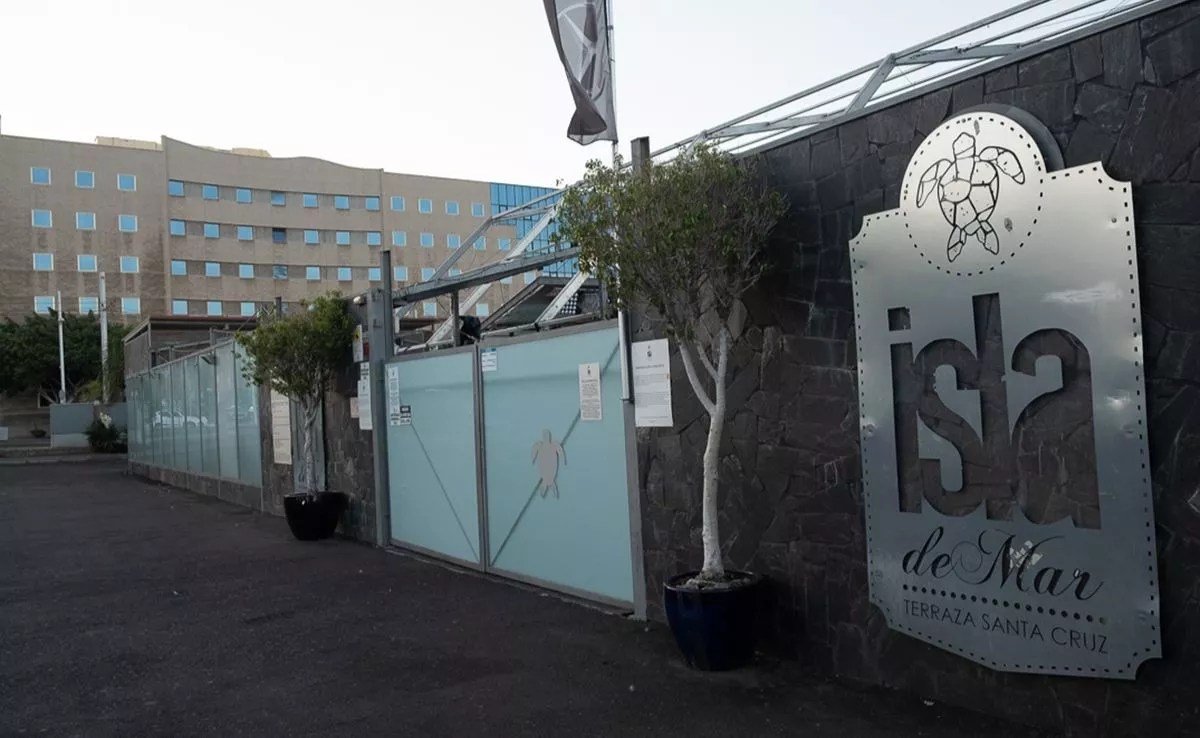
The bankruptcy declared by the German tour operator FTI in the first week of this month will not be resolved without casualties in the Canary Islands. The negotiating table set up at Meeting Point Spain – the reservation headquarters – after the start of the insolvency process has resulted in the presentation of an employment regulation file (ERE) that will affect all 120 employees that the company has in the Canary Islands, two thirds in Las Palmas province and another 40 in Tenerife.
The ERE will be effective on 12th July. Last Wednesday, the workers received their salaries, just a day after starting a paid leave period. The company’s directors urged them to do so a few days earlier. The goal is to minimize the salary liability as much as possible by avoiding the payment of unused vacation days. Only a group of five trusted employees will work until that day 12 to close everything.
Employees are on mandatory leave and there is only enough money until 12th July
[–>
That is the date until which payments are guaranteed. Meeting Point Spain’s calculation concluded that from that day, there will be virtually no money left in the cash register. With this scenario, the most logical path is to recognise individual debts with the employees in the Conciliation, Arbitration, and Mediation Service (Semac) and have the Wage Guarantee Fund (Fogasa) ultimately take over the payment, which will delay the collection.
Meeting Point Spain will join the group of commercial companies within the FTI holding that will also voluntarily file for bankruptcy. This trickle of subsidiaries resorting to insolvency was already announced by the parent company. At the beginning of this week, Meeting Point Hotelmanagement Holding GmbH and Meeting Point International GmbH did so before the Munich Court.
No Impact on Hotels
[–>
The statement issued by the bankrupt tour operator clarified that this decision, accepted by the Bavarian courts, has no “direct impact” on the operations of the hotel division. The accommodation establishments in the Canary Islands – as well as those in Italy, Egypt, Croatia, Morocco, Malta, and Turkey – have “positive cash flow”.
That’s the good news. The fourteen Canary Island hotels – five in Fuerteventura, four in Lanzarote, three in Gran Canaria, and one in Tenerife – managed by Meeting Point Hotel Management, a subsidiary of the German group in the autonomous community, have high occupancies. This current strength is supported by the high level of bookings for the summer and the high demand throughout the destination. Workers do not envisage any change in direction.
In Meeting Point’s accommodation facilities in the islands, between 1,100 and 1,200 people are employed, all of them reportedly paid up to date according to union sources. Having overcome the blow of learning about the FTI Group’s bankruptcy through the media and managed the return of affected travellers home, normality is absolute, say the same sources from the workers’ representative body.
Limited Contribution
[–>
Preserving the health of the hotels has been possible until now due to the limited contribution made by Meeting Point Spain’s clients in recent times. Around 14% of the arrivals were showing a reservation with the stamp of the retailer based in the Canary Islands. In some cases, the proportion did not exceed 5%, as was the case with the Labranda Suites Costa Adeje, in the South of Tenerife.
However, the uncertainty generated by FTI’s departure from the international tourism map has had other consequences. Just a few days ago, the management of the Labranda Playa Bonita, located in Mogán – South of Gran Canaria – changed hands. “Servatur pays more to the owner for the rental, and we already knew about it,” said a source close to Meeting Point.
While the statement is true, it is also not the first removal from the management portfolio in recent months. Since the serious financial difficulties that jeopardised the continuity of FTI Group, many hotel owners have considered a change of course, and quite a few have implemented it.
Regarding the 120 workers who will most likely lose their jobs, the Tourism and Employment Councillor of the Government of the Canary Islands, Jéssica de León, announced the activation of the machinery to assist them as much as possible. When Thomas&Cook collapsed in 2019, direct aids were even made available. De León did not rule out resuming them if circumstances demand.
Subscribe to continue reading
















